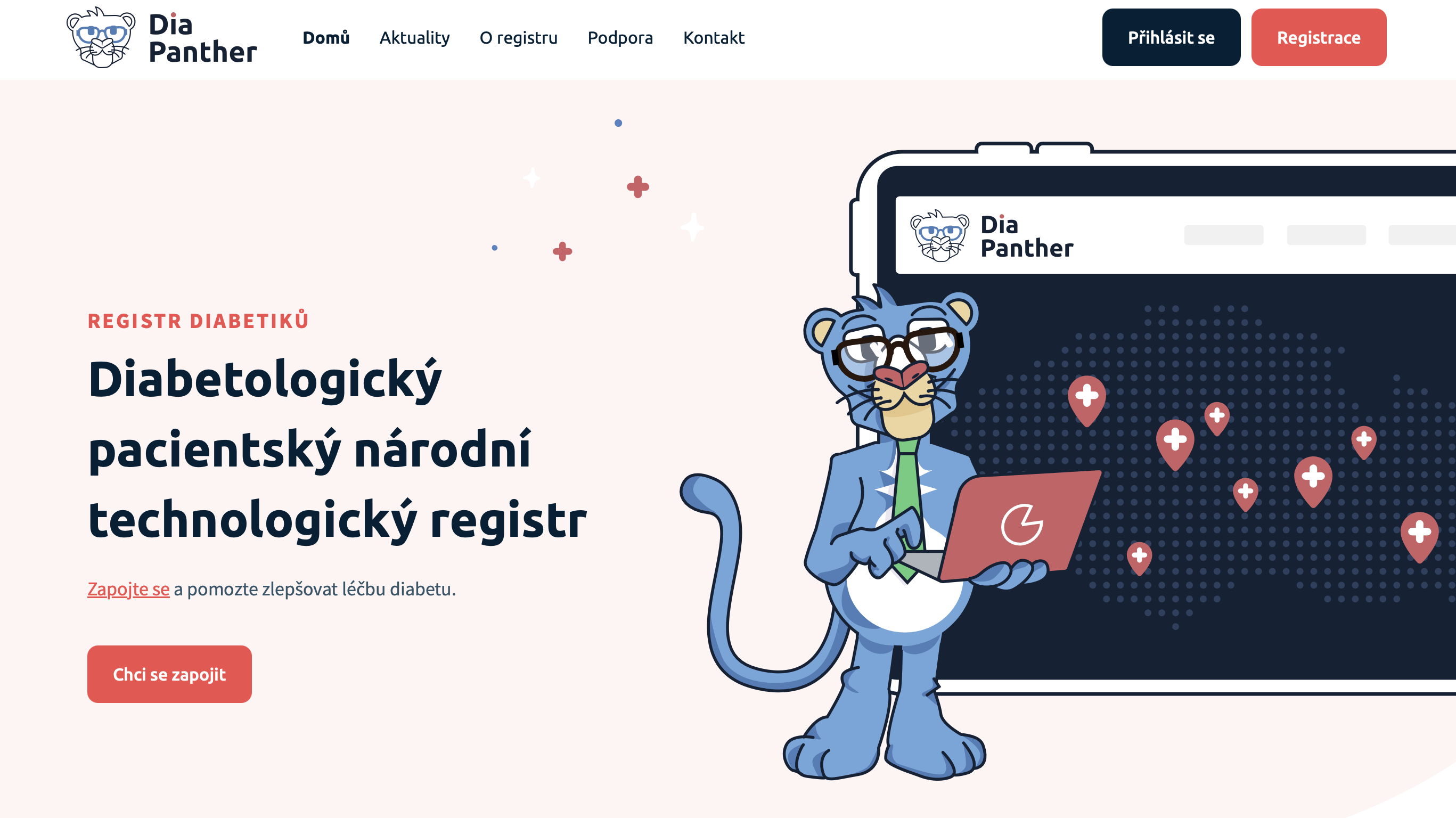
More data about patients means easier treatment adjustment, simpler decisions about which technology will help them best, and more effective negotiations of physicians with insurance companies. This is the main goal of the nationwide Dia Panther registry for patients with type 1 diabetes, established at IKEM with the support of the European Union as part of the CarDia National Institute. The registry allows physicians to monitor the course of the disease in their patients, compare results with anonymized data from the entire database, and thereby better personalize treatment.
So far, 15 institutions have joined the registry, which currently includes 4,800 patients. Physicians can track the use of modern technologies, such as insulin pumps and glucose sensors, and compare treatment outcomes across centers. The registry is also a valuable source of data for research and international comparisons.
“Our goal is for the registry to eventually include the majority—or ideally all—patients with type 1 diabetes in the Czech Republic. The data will allow us to use advanced technologies and the latest medicines more effectively and move Czech diabetology among the leaders in Europe and worldwide,” says Professor Martin Haluzík, MD, DSc., Head of the Diabetes Center at IKEM and principal investigator of CarDia.
The registry has already highlighted what doctors consider a dangerous trend: even among patients with type 1 diabetes, the number of overweight and obese individuals is increasing. Data show that 37% of patients with type 1 diabetes are overweight and 20% are obese. This significantly worsens the course of the disease and increases the risk of complications, such as high blood pressure or abnormal blood lipid levels.
More information: www.diareg.cz